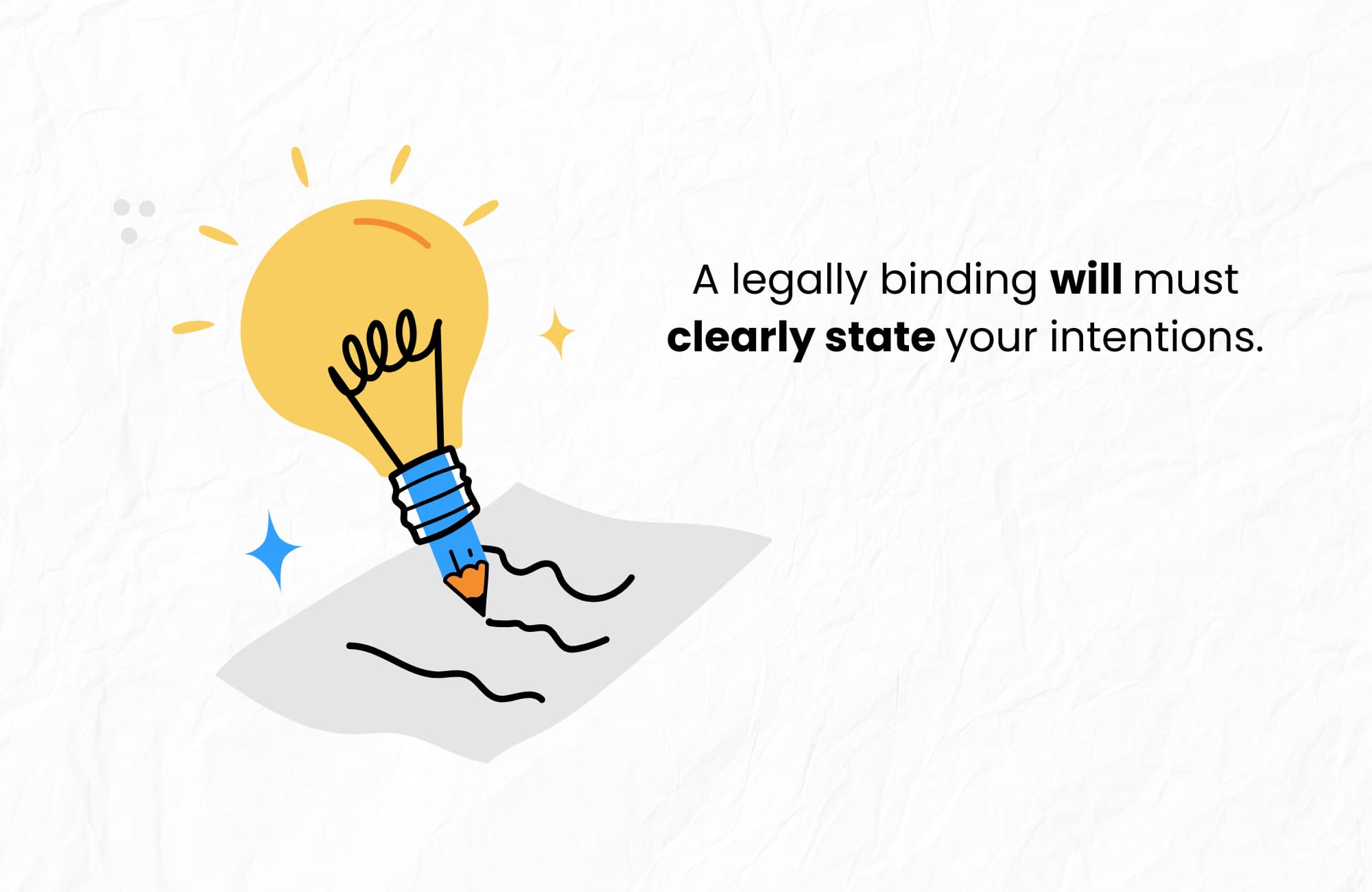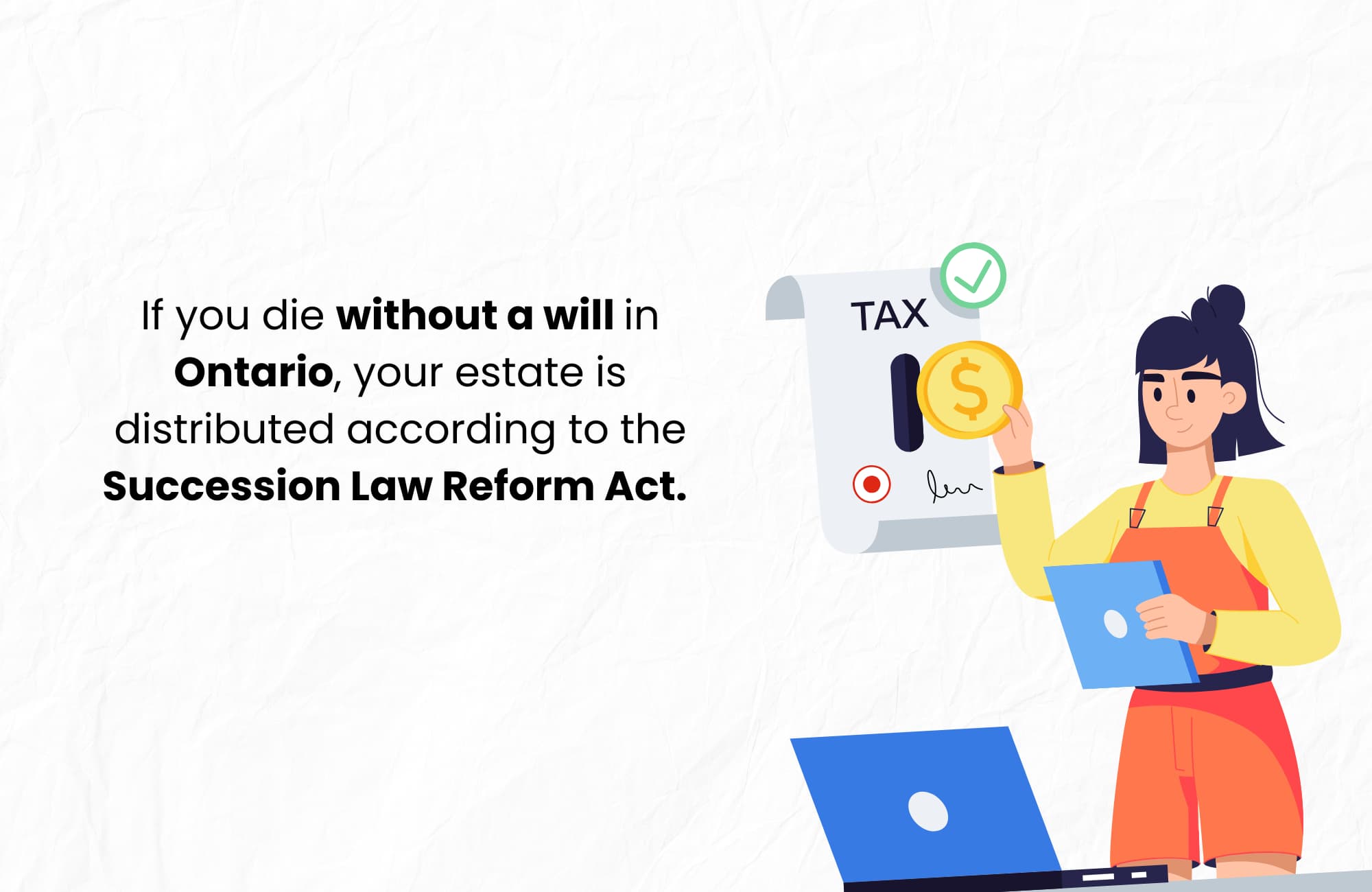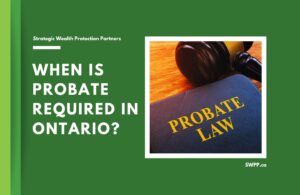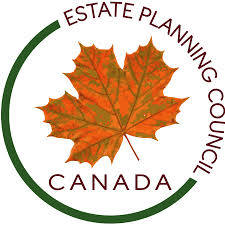Written by Ron Cooke, President & Founder of Strategic Wealth Protection Partners in Ontario, CEA®, Member of the Estate Planning Council Canada
Types of Wills in Ontario
When planning for the future, you want to make sure your wishes are clear and legally protected.
The main types of wills in Ontario are formal wills and holographic wills. Notarial wills are not commonly used in Ontario. A formal will is drafted by a lawyer and signed in the presence of two witnesses, making it the most secure and legally sound option.
A holographic will is handwritten and signed by the testator without witnesses, but it carries a higher risk of being contested.
Choosing the right type of will is crucial to ensuring your estate is distributed according to your wishes. But remember, a will is not the same as an estate plan which takes into consideration tax planning.
In this guide, we’ll walk you through everything you need to know so you can make an informed decision with confidence.

What Are the Different Types of Wills in Ontario?
In Ontario, there are several types of wills, each with different legal implications.
A formal will (also known as an attested will) is typed, signed by the testator, and witnessed by two adults who are not beneficiaries. A holographic will is handwritten and signed by the person making it, with no witnesses required.
Though valid, holographic wills often lack clarity and are easier to challenge. Notarial wills are rare in Ontario but may be recognized if validly created in Quebec or another jurisdiction.
Which Type of Will Is Best for You?
For most people in Ontario, a formal will prepared by an estate lawyer offers the most protection and clarity.
Holographic wills might work in an emergency, but they’re prone to errors and disputes. If you have a blended family, own a business, or want to address complex estate issues, a formal will backed by legal advice is almost always the best choice.

Legal Requirements for Wills in Ontario
To be valid in Ontario, a will must be made by someone who is at least 18 years old and of sound mind.
It must be signed by the testator and witnessed by two individuals who are not beneficiaries or spouses of beneficiaries. A legally binding will must clearly state your intentions and meet these criteria to hold up in court.
Related Read: Can I Write My Own Will in Ontario?

What Makes a Will Invalid in Ontario?
Wills can be ruled invalid if they are improperly signed, lack required witnesses, or were made under duress or without capacity.
Conflicting instructions between multiple wills, or vague language, can also cause a court to dismiss the will. A small mistake can unravel your entire estate plan.
How to Create a Legally Valid Will in Ontario
Here’s a simple process to get started:
- Make a list of all your assets, including your home, investments, business interests, and digital property.
- Decide who will inherit your entire estate or specific gifts.
- Choose your executor and a backup.
- Decide who will be guardian of any minor children.
- Meet with an estate planning professional to draft your will.
- Sign your will in the presence of two qualified witnesses.
- Store your will in a safe place and inform your executor where it is.
Do You Need a Lawyer to Create a Will?
No, a lawyer isn’t required—but if you want to avoid costly errors, delays, or disputes, legal guidance is invaluable.
A lawyer ensures your will complies with all Ontario laws, reflects your true wishes, and accounts for tax and probate considerations. Statement: A properly drafted will is the foundation of your legacy. Because your family deserves clarity, not court dates—book your estate planning call with us today.

How to Update or Change Your Will
You can update your will by creating a codicil or drafting a new one entirely.
Updates are needed after major life changes such as marriage, divorce, the birth of a child, or acquiring new property. To ensure your changes are valid, it’s best to work with a professional who can guide you through Ontario’s legal requirements.
What Happens If Your Will Is Contested?
Wills can be contested by spouses, children, or other dependents who believe they were unfairly excluded or that the will was created under duress or confusion.
A contested will can lead to delays, legal fees, and emotional strain. The best way to protect your will from being challenged is to ensure it’s professionally drafted, clearly worded, and regularly updated.
Do All Wills Go Through Probate in Ontario?
Not all wills require probate, but many do—especially if there are solely owned assets without named beneficiaries.
Probate confirms the will’s validity and authorizes the executor to act. With proper estate planning, including trusts and named beneficiaries, we can often minimize or avoid probate altogether.
Who Inherits Your Assets If You Die Without a Will?
If you die without a will in Ontario, your estate is distributed according to the Succession Law Reform Act.
Your spouse may receive part or all of your estate, but other family members—including children, parents, or siblings—may also inherit depending on your situation. This often leads to higher taxes, longer delays, and family disputes—all of which can be avoided with a properly written will.

Common Questions About Wills in Ontario
Can I write my own will without a lawyer in Ontario?
Yes, you can legally write your own will in Ontario, even without a lawyer. But unless it’s carefully drafted and executed, it may lead to confusion, court challenges, or even be ruled invalid.
How often should I update my will?
You should review your will every 3–5 years, or after major life changes like marriage, divorce, a new child, or a significant change in assets. Regular updates ensure your will stays relevant and protects your family exactly as you intend.
What happens if my executor is unable or unwilling to serve?
If your chosen executor can’t or won’t act, your backup (alternate) executor takes over. If no backup is named, the court will appoint someone—often a family member or licensed professional—to manage your estate.
What is the Succession Law Reform Act in Ontario?
This is the law that governs how estates are distributed when someone dies with or without a will in Ontario. It sets out rules for intestacy, spousal rights, and dependent support, and is the legal backbone of Ontario’s estate administration.
What qualifications should I look for in an estate trustee or personal representative to manage my entire estate?
Choose someone who is responsible, organized, financially literate, and emotionally mature. They’ll be tasked with paying debts, filing taxes, managing probate, and distributing your estate—so choose wisely and always name a backup.
Is it better to appoint a professional estate trustee through the Law Society rather than a family member as my personal representative?
In complex estates, blended families, or high-conflict situations, a neutral professional can reduce risk, delay, and tension. While family members can serve, a licensed trustee brings legal objectivity, experience, and emotional distance, which can be worth every dollar.
How can I ensure that my will isn’t contested over complex estate issues after I’m gone?
The best way is to work with an estate planning expert to ensure your will is clear, legally sound, and up to date. Remember: Confusion breeds conflict. Because your family deserves peace, not courtrooms—book your estate planning session with us today and let’s prevent future problems before they start.
Are electronic wills recognized in Ontario?
As of now, fully digital wills (created and signed electronically without a physical copy) are not yet legally recognized in Ontario. However, temporary provisions introduced during the pandemic allow for virtual witnessing—your lawyer can help you navigate these carefully.
What are the risks of using a handwritten will?
While holographic wills are legal in Ontario, they’re often vague, lack witnesses, and are easier to contest. If not done precisely, a handwritten will can jeopardize your entire estate plan, costing your family time, money, and peace of mind.
A Will Isn’t Enough to Protect Your Family’s Inheritance
Writing a will is a crucial step, but it’s just the beginning.
A will only states who gets what, but it doesn’t help you minimize estate taxes, avoid probate fees, or prevent legal delays.
In Ontario, probate fees (Estate Administration Tax) and capital gains taxes on properties can take a significant portion of your estate. If you own multiple properties, the financial burden could be even greater, forcing your loved ones to sell assets just to cover unexpected costs.
Without proper estate planning, your family could receive far less than you intended. The good news? There are strategies to protect your wealth—but they must be set up before it’s too late.
Keep Your Wealth in the Family with Proper Planning
A well-structured estate plan does more than just pass on your assets—it ensures your wealth stays in the family.
By using tools like trusts, life insurance, and gifting strategies, you can:
✅ Reduce or eliminate probate fees
✅ Minimize capital gains taxes on real estate
✅ Prevent legal disputes and family conflicts
Without these safeguards, your loved ones may face delays, unnecessary legal battles, and financial strain. A strong estate plan gives you peace of mind, knowing that your family will be cared for and your legacy will be protected exactly as you intended.
Schedule a Living Estate Plan Consultation
Planning your legacy is about more than numbers—it’s about ensuring your family remembers you and your values are honoured for many years to come.
Estate planning and trusts can feel overwhelming, especially if it’s your first time. That’s why we’re here.
With our simple, 5-Step Living Estate Plan, we make the process easy, helping you create a comprehensive estate plan or trust that protects your assets from taxes and probate fees while preserving your legacy. Tools like The Final Word Journal capture your story, wishes, and essential details like accounts and end-of-life plans, ensuring your family has clarity and comfort.
Take the first step today—schedule a consultation call and give your family the ultimate gift: peace of mind and the assurance they were always your priority.
Read More
If you’re writing a will, you may find these articles helpful:
- What Is the Cost of a Will in Ontario?
- How to Write a Will in Ontario
- How Much Does a Will Cost in Ontario?
- Living Will Ontario: What It Is and How It Works
- Making a Will in Ontario Checklist
About the Author
RON COOKE, PRESIDENT & FOUNDER OF STRATEGIC WEALTH PROTECTION PARTNERS

With over 30 years in financial services, I’ve seen the challenges families face when a loved one passes—lost assets, unnecessary taxes, and emotional stress. That’s why I created the Living Estate Plan, a comprehensive process to protect assets, eliminate estate and probate fees, and create legacies that are remembered for many years to come.
This plan ensures your family receives not just your wealth, but a meaningful reminder of your care and love. Tools like The Final Word Journal capture your story, wishes, and essential details, offering clarity and comfort during difficult times.
Your final gift should be more than money—it should be peace of mind, cherished memories, and an organized estate.
Schedule a Call
Schedule a 30-minute consultation call with Strategic Wealth Protection Partners.
Click HERE to schedule a consultation.









